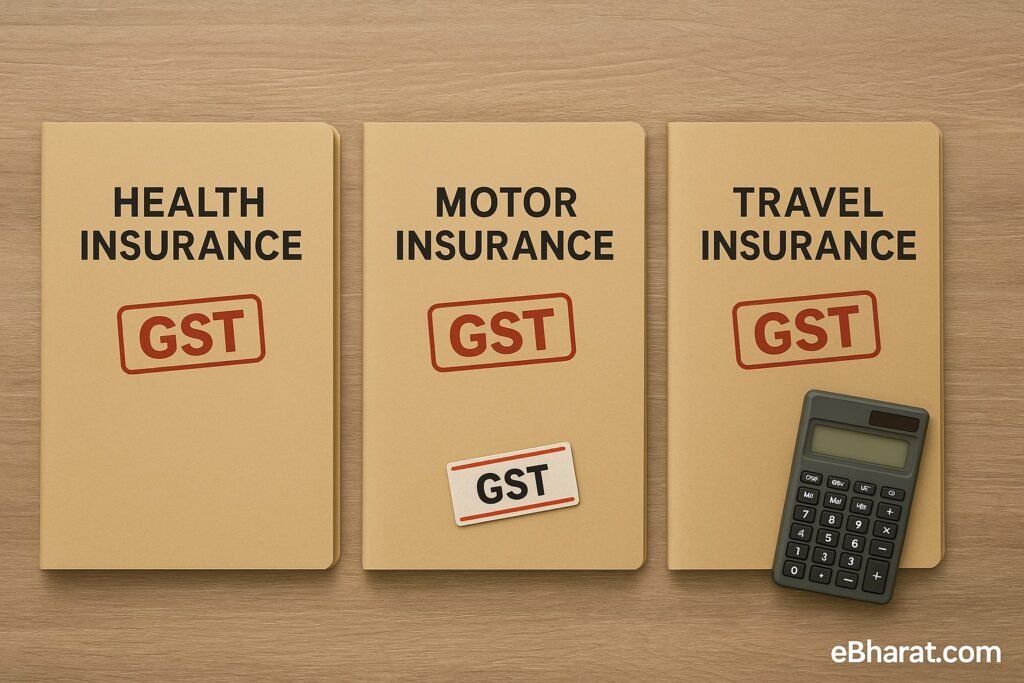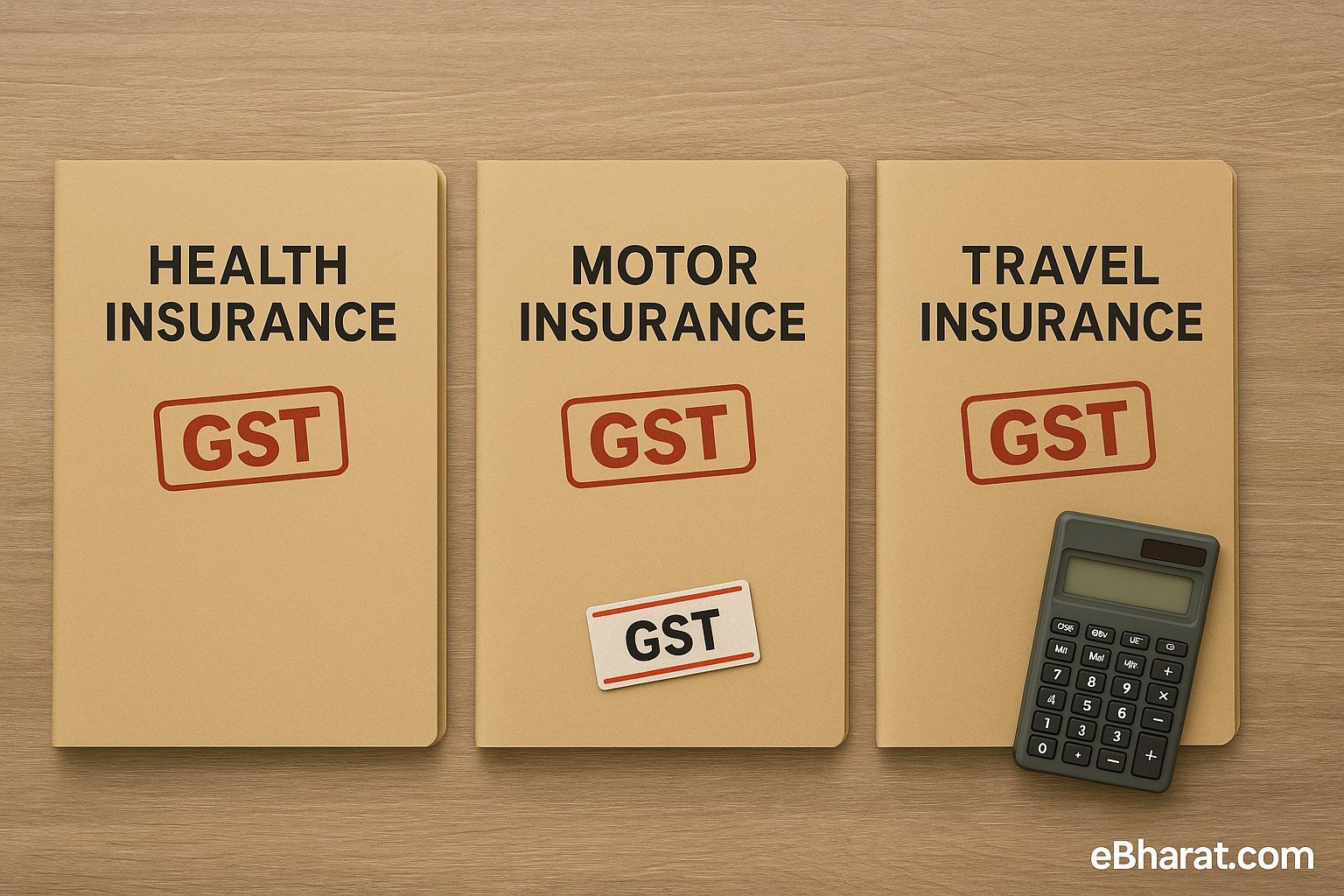
Ever looked at your insurance premium and wondered — Why is the final amount higher than what was advertised?
The answer is simple but often overlooked: GST (Goods and Services Tax).
Whether you’re buying health, motor, home, or travel insurance, an 18% GST is added to your base premium. That one line at the bottom of your invoice can quietly add up — especially if you’re renewing policies every year or managing multiple covers.
GST on General Insurance: A Flat 18% Across the Board
If your base premium is ₹10,000, then:
| Base Premium | GST @18% | Total Payable |
|---|---|---|
| ₹10,000 | ₹1,800 | ₹11,800 |
That’s nearly ₹2,000 extra — which many don’t account for until the final payment screen.
Applicable to all general insurance policies:
- Health insurance
- Car and bike insurance
- Home insurance
- Travel insurance
- Personal accident and critical illness covers
Whether it’s a new policy or a renewal, GST is applied every time.
Why You Rarely See GST in Ads
When insurers promote a policy as “just ₹9/day,” they’re usually quoting the base premium.
But here’s what happens when you apply GST:
| Advertised Daily Cost | Annual Cost (Base) | GST @18% | Actual Daily Cost |
|---|---|---|---|
| ₹9 | ₹3,285 | ₹591 | ₹10.62 |
That small print — “plus taxes” — can mean hundreds or even thousands extra each year.
Life Insurance vs General Insurance — Different GST Rules
Many people assume life insurance is always taxed lower — but it depends on the type of plan.
| Policy Type | GST Rate |
|---|---|
| General Insurance (health, car, travel) | 18% flat |
| Life Insurance – Endowment/ULIPs | 4.5% (1st year), 2.25% (renewals) |
| Term Life Insurance | 18% (same as general insurance) |
So if you buy a pure term plan for ₹8,000 — the final amount you pay will be ₹9,440 after GST. Don’t let the “life insurance = low tax” myth mislead you.
Do Riders & Add-ons Attract GST Too? Yes — at 18%
Every extra feature you add to a general insurance policy — whether it’s a rider or an add-on — is taxed at the same 18% rate.
Example:
Base health insurance = ₹10,000
Add critical illness rider = ₹2,000
Total before GST = ₹12,000
GST @18% = ₹2,160
Final Premium = ₹14,160
So those “optional” benefits come with hidden tax costs — which are often missed in quote comparisons.
Can You Claim GST as a Tax Credit?
NO — If it’s for personal/family use, even if you pay via your business account.
YES — If you’re a business owner/freelancer registered under GST and the policy is for business purposes (e.g., office property insurance, employee group health cover).
Why This Matters More Than You Think
| Policy Type | Base Premium | GST @18% | Total Cost |
|---|---|---|---|
| Health | ₹18,000 | ₹3,240 | ₹21,240 |
| Car | ₹8,000 | ₹1,440 | ₹9,440 |
| Term Life | ₹10,000 | ₹1,800 | ₹11,800 |
| Travel | ₹4,000 | ₹720 | ₹4,720 |
| Total GST Paid Annually | ₹7,200 | ||
That’s ₹7,200 every year just in taxes — money you could budget for emergencies.
Smart Tips Before Buying or Renewing Insurance
- Always compare final premiums (with GST), not just base rates.
- Check if riders/add-ons are essential before adding them.
- If you’re self-employed, ask your CA about Input Tax Credit eligibility.
- Keep track of all insurance invoices for accurate expense tracking.
Did You Know?
GST on general insurance hasn’t changed since 2017, but the rising base premiums mean the actual amount you pay in tax keeps increasing every year.
Final Word: GST Is Inevitable — But Awareness Saves You Surprises
When you compare insurance plans, don’t get swayed by base premium ads.
Factor in GST from the start — because every policy is 18% costlier than it looks.
While GST adds to your insurance costs, you can still offset part of the burden through tax deductions available under Sections 80C, 80D & 10(10D) . These benefits can reduce your overall tax liability if your policy qualifies.













